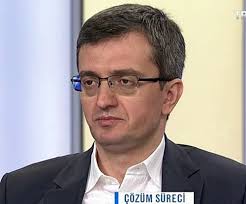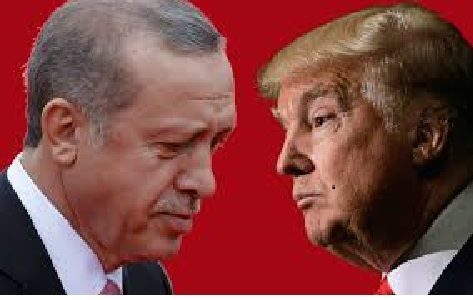
BY: BURHANETTIN DURAN*
If European leaders had given the strong support Putin gave on the night of July 15, we would today be talking about a “Turkey-EU spring” instead of the “second spring” of Turkey and Russia
The meeting between President Recep Tayyip Erdoğan and Russian President Vladimir Putin in St. Petersburg on Tuesday stirred up some heated debates around the world.
Agreeing that the meeting was a signal to the West, European media chose to regard the mending of Russian-Turkish relations as “ominous,” “unnerving” and a “provocation targeting Europe.” They described the meeting as “a meeting of two authoritarian and populist leaders” and “a reconciliation of Tsar and Sultan.”
The main concern behind this is the possibility that Ankara might change its alliance preferences with the recent convergence with Russia. Moscow and Ankara are currently not only repairing economic and commercial relations, but also endeavoring to found a strategic platform to influence international balances.
Along with co-investments in the energy sector like the Akkuyu nuclear power plant and Turkish Stream, they are also exerting efforts for special cooperation on Syria. Their efforts to manage problems in this context are especially significant, as it was Turkey’s downing of the Russian jet on Nov. 24 that precipitated nine months of tension amid the milieu of the Syrian civil war.
The trilateral mechanism includes military, intelligence and diplomatic authorities and will not only relieve the main point of tension between Turkey and Russia, but also create opportunities for further cooperation.
The convergence might lead to some new subject-based evaluations regarding critical regions like the Black Sea, Caucasus, Eastern Europe and the Eastern Mediterranean in the same way as the policies of the U.S. administration left its traditional allies in the Middle East unaided and created a search for new alliances between the regional forces.
Having failed in their responses to the July 15 coup attempt, Western capitals are concerned about the possibility that Putin might want to manipulate Turkish skepticism about the West. Some analysts have taken this concern even further and argue that Putin wants to bring down Europe by means of Turkey and use Ankara to realize the dream of dissolving NATO. But NATO has made an announcement that Turkey’s membership is not a matter for discussion.
The convergence, enabled by the strong leadership and pragmatic tendencies of both Erdoğan and Putin, does not have any possibility of shifting Turkey’s position into an anti-Western and pro-Eurasia axis, and Ankara does not aspire to change its alliances or positions. However, it should be noted that this convergence is a development that will affect Turkey’s position in its Western alliances and the meaning of its alliance relations.
Turkey is highly disturbed by the attitudes of the U.S. and the EU, which have not helped Ankara concerning the negative effects of the Syrian civil war and even created new problems. The support provided to the outlawed PKK and its Syrian offshoot, the Democratic Union Party (PYD), the unshared burden of Syrian refugees and the ongoing international campaign against Turkey that began three years ago are among the problems they created.
Their sheer carelessness regarding the July 15 coup attempt and the subject of the Gülenist Terror Group (FETÖ) have recently been added to these problems.
It is no use to raise the alarms of an axis shift again in order to clear up the problems Turkey has with its relations with the EU, NATO and the U.S, nor will repeating that Turkey is a strong ally make any contribution. What needs to be done is to show respect to Turkey’s perceptions of security threats and its crucial priorities.
The obsolete alliance between Turkey and the West, i.e., the EU and the U.S., must be redefined.
July 15 was a good opportunity for that.
Moral support in line with the ideals of Western democracy could have been given for a new beginning. Perhaps if European leaders had given the strong support Putin gave on the night of July 15, we would today be talking about a “Turkey-EU spring” instead of the “second spring” of Turkey and Russia.
The EU and the U.S. must revise their policies on Turkey. The EU is undermining its alliance with the country by its failures regarding the Syrian refugee crisis while the U.S. is souring relations with its obsession with the PYD in the context of the anti-DAESH fight.
The agenda of Western capitals for Turkey must focus on these points above all else.



